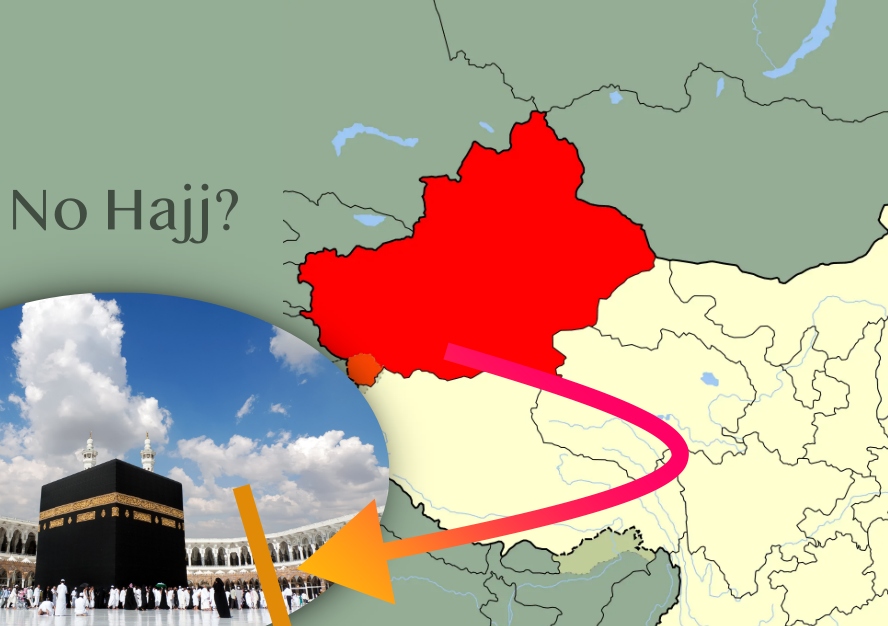
“Pilgrims find their soul’s compass in the rituals of Hajj,” according to one old maxim.
“Hajj is the ultimate expression of submission to the divine will,” says another.
The Hajj is the annual ritual pilgrimmage to Mecca, Islam’s holiest city, and is considered a mandatory religious duty for Muslims to be carried out at least once in a lifetime, health and wealth permitting.
But what about the Uyghur Muslims in China?
“No Uyghurs from China’s far-western region of Xinjiang were among the Muslims from China who went on this year’s Hajj,” explains Radio Free Asia, “according to data from the Islamic Association of China and a Uyghur living abroad who went on the pilgrimage to Mecca.
As of early June, 1,053 pilgrims – 769 from China’s Gansu province and 284 from Yunnan province – were registered to go on the Hajj, according to the website of the Islamic Association of China. No Uyghurs or other Muslims from Xinjiang were included in the tally.
Last year, 386 pilgrims from Ningxia province and other places in China participated, but none from Xinjiang.
The last time any pilgrim from Xinjiang was reported by the association was in 2016.
Gulchehra Hoja, “No Uyghurs from Xinjiang went on Hajj pilgrimage, data shows,” RFA Uyghur, July 2, 2024.
It is hard not to extrapolate: “Chinese authorities are not permitting any Muslims from Xinjiang from going on the pilgrimage,” which is one of many reflections upon “Beijing’s wider repression of Uyghur culture and religious practice, activists and experts say.”





